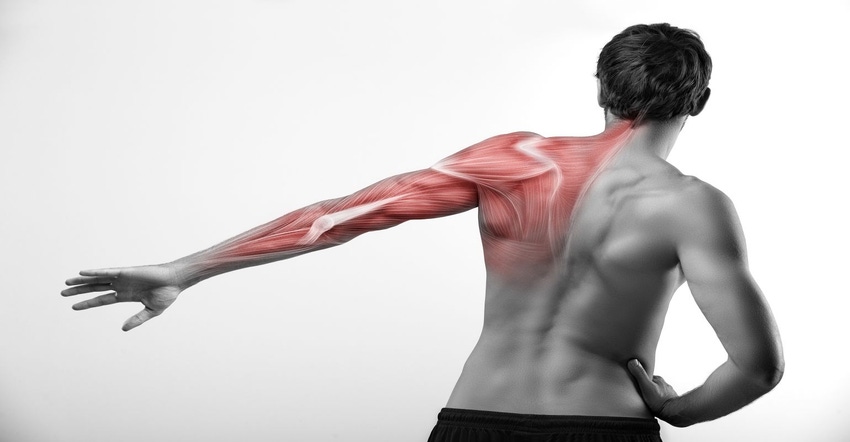Tendon nutrition
A range of nutrients such as collagen and vitamin C may aid in maintaining tendon elasticity and strength.

Important connective tissues, tendons are an essential part of the musculoskeletal system. Tendons can be thought of as the support cables of the body, as they anchor muscles to bone so that when muscle contraction occurs, the body moves accordingly.
Unlike muscles, tendons are not very elastic and do not offer much room to stretch. As a result, tendon injuries tend to be fairly common and may happen suddenly or as the result of gradual wear and tear over time. Common tendon injuries include:
• Tendinitis: Inflammation of the tendon
• Tendinosis: Small tears in the tissue in and around the tendon as a result of overuse
Nutrients for healthy tendons
Tendons are dense connective tissue consisting mainly of collagen and elastin. A diet rich in nutrients may aid in maintaining tendon elasticity and strength.1 The following nutrients may help support overall tendon health.
Collagen is the protein that makes tendons strong, while the protein elastin helps provide elasticity. As the body ages, collagen production decreases, leading to stiffer, less flexible tendons which may result in joint pain or osteoarthritis (OA).2 Dietary collagen peptides may provide the essential amino acid (EAA) building blocks to produce new collagen within the body,3 reduce activity-related joint pain,4 and strengthen tendons and ligaments.5
Vitamin C plays a critical role in the production of collagen within the body, and deficiencies may weaken tendons by preventing proper collagen synthesis.6 Vitamin C is a water-soluble vitamin that cannot be stored by the body, making its regular consumption even more vital. Many foods contain adequate amounts of vitamin C such as citrus fruits, peppers, strawberries and broccoli.
Editor’s Note: This excerpt was taken from a longer feature in the “Joint and bone health to maximize movement” digital magazine. Click the link to access all of it.
Madison Dorn specializes in the creation and management of content, with particular passion for the health/nutrition and fitness industries. In her free time, she enjoys working out and is a CrossFit Level One certified coach.
References
1 Liu S et al. “Collagen in tendon, ligament, and bone healing. A current review.” Clin Orthop Relat Res. 1995;(318):265-278.
2 Verzijl N et al. “Crosslinking by advanced glycation end products increases the stiffness of the collagen network in human articular cartilage: a possible mechanism through which age is a risk factor for osteoarthritis.” Arthritis Rheum. 2002;46(1):114-123.
3 Deane C et al. “Animal, Plant, Collagen and Blended Dietary Proteins: Effects on Musculoskeletal Outcomes.” Nutrients. 2020;12(9):2670.
4 Zdzieblik D et al. “Corrigendum: Improvement of activity-related knee joint discomfort following supplementation of specific collagen peptides.” Appl Physiol Nutr Metab. 2017;42(11):1237.
5 Praet S et al. “Oral Supplementation of Specific Collagen Peptides Combined with Calf-Strengthening Exercises Enhances Function and Reduces Pain in Achilles Tendinopathy Patients.” Nutrients. 2019;11(1):76.
6 DePhillipo N et al. “Efficacy of Vitamin C Supplementation on Collagen Synthesis and Oxidative Stress After Musculoskeletal Injuries: A Systematic Review.” Orthop J Sports Med. 2018;6(10):2325967118804544.
About the Author(s)
You May Also Like






.png?width=800&auto=webp&quality=80&disable=upscale)